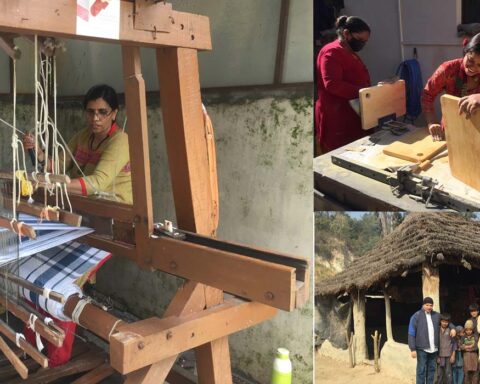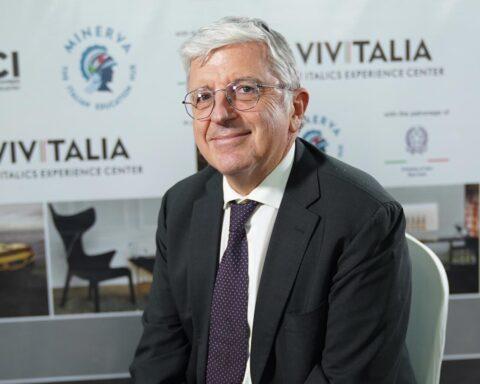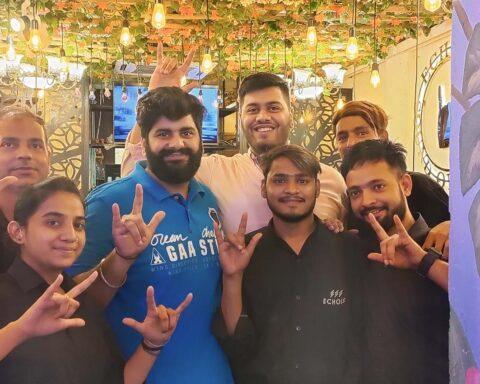Assam Chief Minister Himanta Biswa Sarma on Wednesday honoured industrialist Ratan Tata with the state’s highest civilian award Assam Vaibhav for his contribution in promoting cancer treatment facilities in the state.
Ratan Tata, Chairman, Tata Trusts, was honoured during an event held in Mumbai, informed an official release issued in Guwahati.
The award had to be awarded on January 24, but Tata could not attend the programme due to personal reasons. Himanta Biswa Sarma said, “Tata Sons and Assam Government are together creating a huge cancer care network, in which Ratan Tata has a big contribution. Under this, he was given a citation, medal and a cash prize of ₹5 lakh.
Governor Jagdish Mukhi had presented Assam Saurav and Assam Gaurav to 18 other eminent personalities in this programme.
Tata Trust, in collaboration with the Government of Assam, decided to set up cancer care units in the year 2018. Tata’s entry into cancer care dates back to 1941 when the Tata Memorial Hospital opened in Mumbai. The management of the hospital was handed over to the Ministry of Health in 1962. In 2012, the Trusts launched the Tata Medical Center in Kolkata to address the high prevalence of cancer and the lack of suitable facilities in the eastern and north-eastern regions.
The Trusts also support cross-subsidised screening programmes for common cancers; the aim of every initiative, including exploring the possibility of genetic testing, is to ensure greater awareness and accessibility to cancer screening, diagnosis and treatment.
The Tata Trusts follow a four-pronged strategy in order to shift cancer diagnosis to the early stage:
- Community outreach programmes
- Delivering preventive health packages at the community level using the state health system, with the support of partner organisations. The aim is to strengthen the populations’ knowledge, practice and attitudes on cancer.
- Developing awareness programmes and behaviour change communication using sports and games, cultural programmes rallies, storytelling, etc.
- Conducting community-based awareness programmes using different cohorts working in the community such as accredited social health activists (ASHAs), auxiliary nurse midwives (ANMs), NGOs, FBOs, Panchayat Raj institute members, community leaders and student bodies.
- Training and capacity building: Strengthening the capacities of the healthcare system to prevent and control oral, breast and cervical cancers by supporting the state non-communicable disease (NCD) cell in training and capacity building of healthcare providers.
- Tobacco control: Engaging with the National Tobacco Control Programme, advocating the implementation of tobacco-control laws (COTPA), creating tobacco-free educational institutions, supporting higher tax rates etc. The Trusts also train and sensitise enforcement officers such as the police, municipal corporation, local regulatory bodies, etc.
- Management information system: The Trusts use the NCD app released by the government for universal prevention, control, screening and management initiative under Ayushman Bharat, the Government of India’s comprehensive public healthcare programme. This facilitates better patient management, tracking and follow-up.
The Trusts deploy all donations to strengthen the government system to promote cancer prevention and early detection so as to make a systemic change in the health sector. Specifically, the funds are used to upgrade infrastructure at sub-centres and primary healthcare centres as well as to train human resources at these sites. The initial focus is on Maharashtra, Assam, Rajasthan and Uttar Pradesh.
Cancer cases in India increased at an average annual rate of 1.1-2 per cent from 2010 to 2019. Deaths from cancer in the country also went up at an average rate of 0.1-1 per cent in the same period.

























